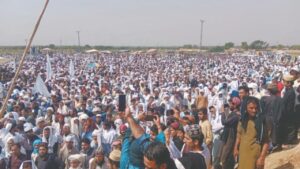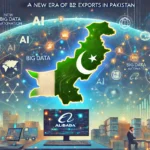The Pashtun Tahafuz Movement (PTM) has become a significant socio-political force in Pakistan, particularly in the Pashtun belt. Led by Manzoor Pashteen, PTM advocates for the rights of Pashtuns affected by years of militancy and military operations. Its roots, however, trace back to the earlier Mahsud Tahafuz Movement (MTM), which was a local initiative addressing the issues faced by the Mahsud tribe in Waziristan. As the movement grew, it expanded its focus and rebranded as the Pashtun Tahafuz Movement (PTM).
The Formation of PTM
In the early stages, the Mahsud Tahafuz Movement (MTM) was primarily focused on the concerns of the Mahsud tribe in the aftermath of military operations and conflicts in Waziristan. The region had become a center of militancy, leading to significant displacement and suffering for the local population. Young activists, including Manzoor Pashteen, began organizing to highlight these issues and demand justice.
The MTM gained wider recognition after the extrajudicial killing of Naqeebullah Mehsud in Karachi in 2018. Naqeebullah’s murder sparked outrage, leading to protests that eventually culminated in a march from Karachi to Islamabad. This marked a turning point for the movement, as it expanded beyond the Mahsud tribe to include the broader Pashtun community.
During the march, activists realized the need to broaden their agenda and rename the movement to reflect a more inclusive stance. Thus, the Mahsud Tahafuz Movement became the Pashtun Tahafuz Movement (PTM), representing the entire Pashtun population and addressing their grievances.
PTM’s Key Demands
PTM’s demands have remained consistent since its inception, focusing on justice and the protection of Pashtun rights. Some of the primary issues include:
- Justice for Naqeebullah Mehsud’s Killing: One of the movement’s earliest demands was to bring to justice the police officer responsible for Naqeebullah Mehsud’s extrajudicial killing. This demand highlighted the issue of state violence against Pashtuns.
- Clearing Landmines in Tribal Areas: PTM has consistently called for the removal of landmines scattered across the former Federally Administered Tribal Areas (FATA), which have caused severe injuries and deaths, particularly among children.
- Restoration of Civil Rights: PTM seeks the extension of Pakistan’s legal and constitutional framework to the tribal areas, which have long been governed by outdated and repressive laws.
- Compensation for War-Affected Pashtuns: PTM also demands compensation for those affected by military operations and conflicts in the tribal areas. This includes individuals who lost their homes, livelihoods, and loved ones due to the violence.
- End to Enforced Disappearances: PTM has consistently highlighted the issue of enforced disappearances, where individuals are taken by security forces without due process. The movement demands the release of these individuals or, at the very least, information on their whereabouts.
PTM’s Role in Pashtun Society
PTM has been a powerful voice for Pashtun rights, especially in areas like Waziristan, Swat, and Khyber Pakhtunkhwa, where military operations have left a lasting impact. The movement’s ability to mobilize people around issues of justice, security, and human rights has made it a prominent force in Pakistan’s political landscape.
For many Pashtuns, PTM represents a form of peaceful resistance against the injustices they have faced for decades. The jirga, or Pashtun tribal council, has historically played a role in resolving disputes within the Pashtun community. PTM, in many ways, can be seen as a modern extension of this tradition, as it aims to bring attention to the broader issues affecting the Pashtun people.
Pashtun Qaumi Jirga: A Platform for Unity
One of PTM’s key strategies has been to organize jirgas, or tribal assemblies, to discuss and address the problems facing Pashtun society. These gatherings have provided a platform for Pashtuns to come together, voice their concerns, and seek solutions.
The Pashtun Qaumi Jirga, a significant aspect of PTM’s efforts, serves as an alternate dispute resolution mechanism rooted in Pashtun culture. Historically, jirgas have been used to resolve conflicts and maintain order within the community. However, with the rise of terrorism and militancy, many traditional structures have been weakened or misused. PTM’s adaptation of the jirga system aims to revive this institution and use it to foster unity among Pashtuns while addressing their grievances.
Government’s Response and Declaring PTM an “Outlawed Organization”
The government’s stance on PTM has been one of resistance. In recent years, the Pakistani state has labeled PTM as an anti-state organization, citing its alleged links to foreign entities and its criticism of the military. PTM leaders, including Manzoor Pashteen, have faced arrests and legal challenges.
Despite these challenges, PTM continues to operate, organizing protests and raising awareness about the plight of Pashtuns. The movement’s persistence has gained it support both within Pakistan and internationally.
The government’s decision to declare PTM a proscribed organization has only further complicated the situation. Many see this as a repeat of how the state mishandled the situation in Balochistan, where grievances were similarly ignored, leading to unrest and insurgency.
The Future of PTM
As PTM continues its struggle, it faces both internal and external challenges. Internally, there has been division within the movement regarding participation in elections. Some leaders, such as Mohsin Dawar and Ali Wazir, chose to contest elections and represent PTM in parliament. However, Manzoor Pashteen and his group have remained committed to keeping PTM a non-political movement focused on grassroots activism.
Externally, PTM’s future will depend on how the state chooses to engage with it. The movement’s grievances—such as enforced disappearances, landmines, and justice for extrajudicial killings—are shared by many Pashtuns, making PTM a significant force in the region.
Conclusion
The Pashtun Tahafuz Movement (PTM) has emerged as a vital voice for Pashtuns, advocating for justice, civil rights, and the end of military excesses in tribal areas. Despite government opposition and internal challenges, PTM’s role in Pashtun society remains crucial. Its use of traditional Pashtun structures like the jirga and its grassroots mobilization have kept the movement relevant in the ever-evolving socio-political landscape of Pakistan. Whether PTM will achieve its goals depends on how the state addresses the legitimate concerns of the Pashtun people.





